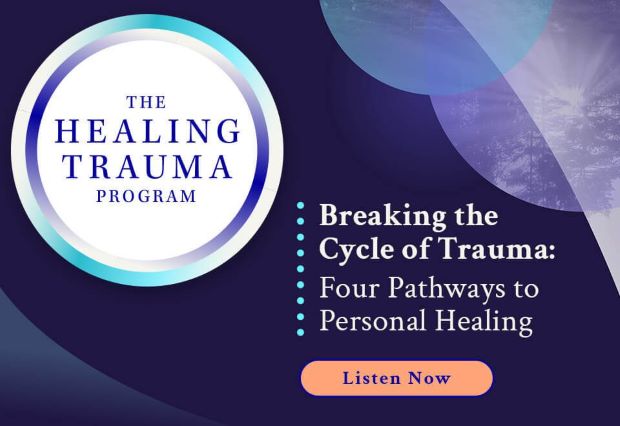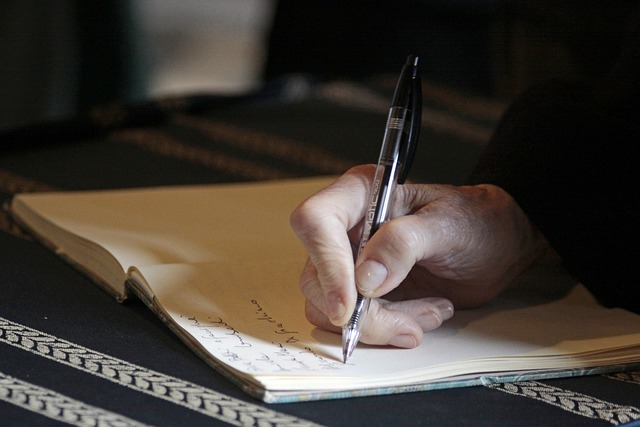Creative Meetups are provided by the Health Story Collaborative (HSC) to enable participants to reflect, connect and gain support from other people who are also living with chronic illness or disability or are carers. The free Meetups, currently facilitated by Jennifer Harris on the Zoom platform, provide a stimulus for writing “to access and release emotions, personal stories and creative spirits”. They form an avenue for healing through the mechanism of narrative therapy.
Alice Morgan, author of What Is Narrative Therapy?, maintains that narrative therapy can take many forms. For instance, she suggests that it can involve “particular ways of talking with people about their lives and the problems they are experiencing”. In essence, it involves people sharing their stories orally and/or in writing to gain insight into the meanings they ascribe to events, experiences and current situations (such as a physical or mental health condition). Jodi Clarke points out that we carry multiple self-stories including those related to “self-esteem, abilities, relationships and work.” She maintains that the process of “putting your narrative together” (however, this is created) enables an individual “to find their voice” as they explore their life experiences and the meanings they attribute to them.
What is action learning?
Action learning can be described in simple terms as a cycle – planning, taking action and reflecting on the outcomes (intended and unintended). It is used worldwide in public, private and not-for profit organisations and communities to create positive change and empower people to be the best they can be. It can be undertaken by an individual by themselves (as I have done with my tennis playing over the years) or, more often, as part of a group or “action learning set”.
Creative Meetups and Action Learning
Creative Meetups and action learning have a core assumption in common. Alice Morgan expressed this well when she maintained that narrative therapy assumes that “people have many skills, competencies, beliefs, values, commitments and abilities” to resolve their own challenging situations – an assumption that underpins the process of Creative Meetups. This is also a fundamental assumption of action learning (AL).
Reg Revans, the “Father of Action Learning”, charged with improving the mining industry in the UK, got mining managers together to solve their “here and now problems” in the mines. He also got nurses in Intensive Care Units together to work on their challenging situations. In an action learning context, participants are often described as “personal scientists”. Some academics in universities, tied to the concept of universities as the sole repository of “expert knowledge”, had great difficulty accepting this core assumption and would actively oppose the uptake of action learning – it challenged their firmly held beliefs about knowledge creation and dissemination.
Creative Meetups and action learning have a number of other elements in common and, in the final analysis, both seek to create positive change in a situation (either individual or collective). Some of the shared elements are as follows:
- Peer support – a fundamental principle is to treat each other as peers – with no acknowledged hierarchical difference. There is a recognition that we are “all in the same boat” – each facing challenging situations. Reg described this element as “comrades in adversity”; more recently, people have termed it “comrades in opportunity”. In essence, it involves providing mutual support irrespective of our work role, status, social position or experience level.
- Collaboration – participants work together towards a common goal (e.g. health and healing or team improvement) and willingly share stores, resources, and insights for mutual benefit. People are unstinting in their sharing – often recommending or loaning books, highlighting helpful websites or identifying relevant expert people.
- Don’t know mind – participants adopt a “don’t know mind”, not presuming to know and understand another person’s situation. Reg suggests that if you think you understand something fully, you are not only going to get yourself into trouble but other people as well. Adopting a don’t know mind – not jumping to conclusions or interrupting another’s story with your own (erroneously assuming they are same or similar) – enables a person to tell their story in an unfettered way, opening up the path to healing and recovery.
- Honesty – the conscious exploration of what it means to be honest with oneself (owning up) and with others. This opens the way for improvement and change. The process of writing in Creative Meetups helps participants to identify false self-stories and unearth truer and richer stories that open up new avenues for their lives and their relationships. Action learning, too, enables the development of honesty. Reg, for example, recounts an action learning program involving industrial executives in Belgium who, after 18 months of action learning, identified “What is an honest man and what do I need to become one?” (they were all men) as the most significant question they wished they had asked at the start of the program. He maintained that the pathway to learning and change involves “admitting what you do not know”. Reg also maintained that if you are going to do “something significant about something imperative”, you will come up against how you define yourself and your role.
- Reflection – reflection is assisted by writing and sharing. The more we reflect, the more it becomes a way of life. Frequent reflection-on-action can result in the ability to reflect-in-action. Reg suggests that reflection is best done in a group because when we reflect alone we can tend to reinforce our existing assumptions and maintain our blindspots. He argues for diversity in the reflective group – diversity of culture, nationality, profession and orientation (business/not-for-profit/community). The Creative Meetups provide a rich diversity in terms of location (participants are from different countries and cultures) and health/caring situation. Participants can gain insight gratuitously when others share their reflections from their different perspectives.
- Questioning – the willingness and ability to ask “fresh question” to open upinsight into a challenging situation. Reg describes this as “questioning insight”. This approach involves “supportive challenge” – challenging assumptions to enable a person to be the best they can be. Alice Morgan highlights the role of questioning in narrative therapy because we can often develop negative self-stories. Both action learning and Creative Meetups (narrative therapy) cultivate curiosity.
- Action taking – action learning involves learning through action undertaken with others where possible. Creative Meetups promote writing as taking action to become open to the healing power of storytelling. The writing can take any form, e.g. prose, poetry, dot points. Action is also reflected in the changes in behaviour undertaken by participants as a result of insights gained through writing and sharing.
- Facilitation – to design and manage the process of sharing. In Creative Meetups, the facilitator provides stimulus material (e.g., a story, music or poem) to enable participants to write and share. In action learning, the facilitator guides the process of planning, acting, reflecting and sharing. In both situations, the facilitator is not a teacher. Their role is to create an environment that promotes safety, trust, openness and sharing – their metaprocess goal is to develop a learning community.
Creative Meetups, in promoting writing and reflection, are helping participants to grow in mindfulness which is described by MARC (UCLA) as “paying attention to present moment experiences with openness, curiosity and a willingness to be with what is”. Both action learning and mindfulness contribute to positive mental health because they increase self-awareness and heighten a sense of agency (belief in the capacity to have some control over our inner and outer environment). In cultivating mindfulness, both approaches help people to develop resilience, compassion and creativity.
Reflection
I initially joined the Meetups with a view to writing my stories in prose but have found that the stimulus provided by the discussions and my recent reading of Kim Rosen’s book, Saved by a Poem: The Transformative Power of Words, has led me to write several poems about my health story and the process of the Meetups. Kim’s identification of the transformative elements of a poem continues to provide a pathway for my poetic expression. I used her elements to analyse a poem I had written called For the Love of Tennis that enabled me to express my gratitude for being able to continue to play tennis despite a diagnosis of “multiple-level spinal degeneration”.
Following a recent Meetup, I unearthed my feelings about my chronic condition of food sensitivity/allergy resulting from Long Covid-induced Mast Cell Activation Syndrome. I was surprised about the intensity of my feelings of frustration and alienation that I had not previously given voice to. The poem, The Inflammatory Thread in My Life, provided a creative outlet and release for emotions I had kept “under wraps” and not expressed to anyone, including myself.
In a previous post, I shared a poem, Compassionate Listening, that I wrote following a Creative Meetup where the stimulus input included an excerpt from Joni Mitchell’s performance of Both Sides Now at the 2024 Grammy Awards. To me the poem reflects the stance of participants of the Creative Meetup in being able to engage in deep listening, provide active support of the storyteller and reflect back not only the feelings expressed but also the intensity of those feelings.
Compassionate listening strongly reflects the ethos of HSC where Healing Story Principals (such as Micheal Bischoff) sought to support people “to tell and listen to stories in ways that are healing, connected and empowering”. The support and connection underpinning Creative Meetups and action learning promote health and healing.
Reflecting on the process of Creative Meetups and my long-standing experience with action learning in multiple contexts, I was inspired to write the following poem:
Where is “There”?
When you share your innermost secrets
and I say, “I’ve been there!”,
where is “there”?
It’s not where you have been
with your unique experience and perception.
I’m not inside you looking out,
I’m outside you looking in.
It’s like the glimpse of the Bay
that I get from my back deck.
It’s not the Bay!
It’s only a tiny window
on a complex ecosystem.
____________________________________________
Image by Xavier Lavin Pino from Pixabay
By Ron Passfield – Copyright (Creative Commons license, Attribution–Non Commercial–No Derivatives)
Disclosure: If you purchase a product through this site, I may earn a commission which will help to pay for the site and the resources to support the blog.




